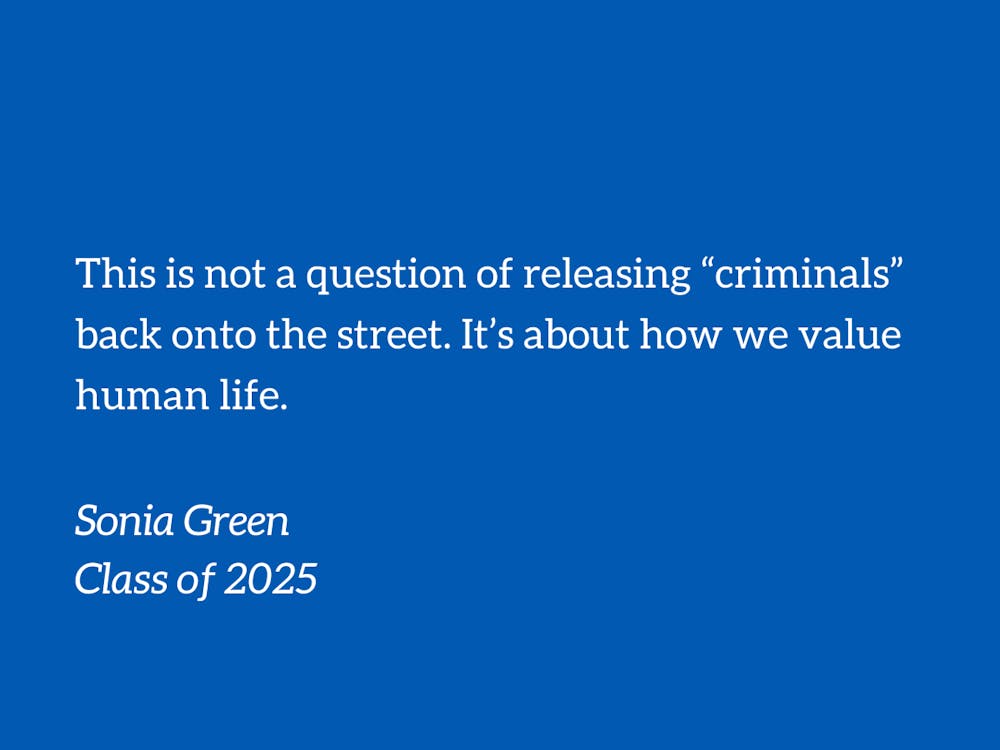In 2001, Marcellus Williams was convicted of the 1998 murder of Felicia Gayle, a former newspaper reporter. On Sept. 24, he died by lethal injection. Williams’ story exposes the cracks in our justice system that will continue to spread if we do not take action.
Every few months we are bombarded with stories of people who have been in prison for decades for crimes they did not commit. Occasionally they are on death row, but usually, advocates are able to help them acquire their freedom. But this was the first time that I had seen one of these campaigns fail. This failure was extremely eye-opening to me as I had come to understand this as a cycle of outrage and resolution. It showed us all that it is possible to fight for innocent people behind bars and fail. The stakes in this case were life and death.
A key detail in this story is race. Williams was a Black man convicted of the murder of a white woman. Despite the prevailing idea that we live in a "post-racial" society, this story is proof that we do not. Williams’ race played a role in his unjust conviction, denied appeals and untimely passing. For generations, Black males have been punished when crimes were committed against white women, even when evidence was marginal at best. The story of Emmet Till stands as a prime example. At only 14 years old, he was brutally murdered after allegedly whistling at a white woman. This brings forth the question; why is it that a Black man’s claim of innocence is seldom respected?
In Williams’ case, aside from his word, he also had attorneys from both sides, the victim's family and the Innocence Project (a nonprofit that uses DNA and other scientific advancements to prove wrongful conviction) all fighting against his execution. Even their words and the evidence they presented proved not to be enough. Perhaps the most disheartening part of this story is that Missouri’s Republican governor Michael Parson also had the power to intervene but chose not to, stating: "Nothing from the real facts of this case have led me to believe in Mr. Williams’ innocence, as such, Mr. Williams’ punishment will be carried out as ordered by the Supreme Court."
I do not write this to sadden the Duke community. All we can do is pray for the family and friends of Marcellus Williams as they grieve. I write this in order to demonstrate exactly why it is important for all of us to vote. This is not a question of releasing "criminals" back onto the street. It’s about how we value human life. It is estimated that approximately 4.1% of people on death row are likely innocent. This may seem like a marginal number of people, but in a country that professes to be built on "life, liberty, and the pursuit of happiness," there is a clear contradiction.
This is why we must vote in every election. Even in seemingly small elections or when we feel that no one candidate is perfect, we must vote. Voting ensures that we are not rushing at the end to prevent the death of an innocent man, but that we are putting people in power who will actually listen to the appeals brought forth in the court of law.
As an African American, I was extremely disheartened when I received news of Marcellus Williams’ execution. I walked around campus deeply saddened and I could barely go on Instagram without seeing a post about Williams’ execution. I did, however, come across a post by the National Association for the Advancement of Colored People (NAACP) that stated “A man was lynched today” and I cannot help but agree.
Sonia Green is a Trinity senior. Her pieces typically run on alternate Thursdays.
Get The Chronicle straight to your inbox
Sign up for our weekly newsletter. Cancel at any time.

